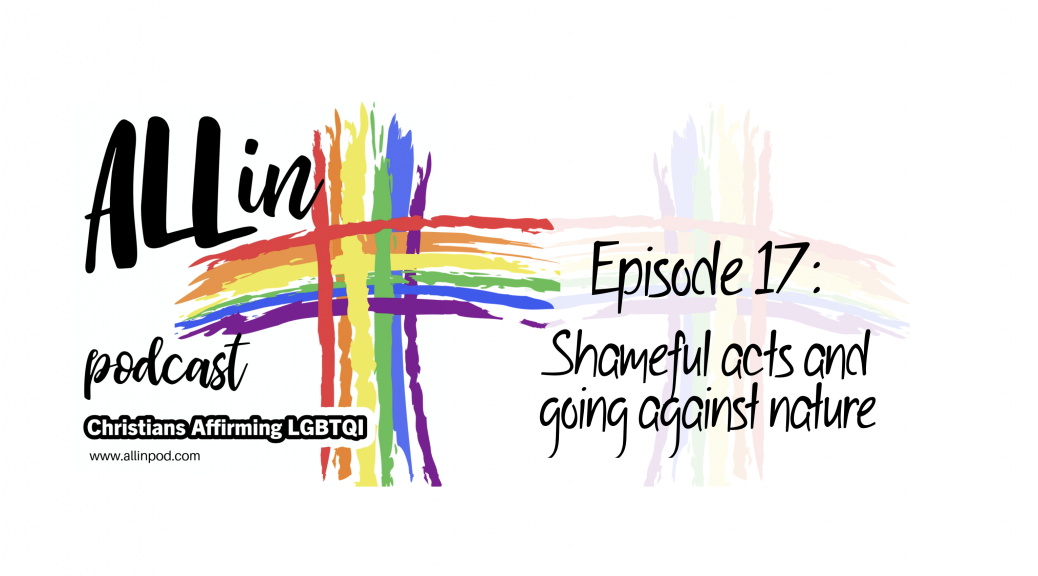In Romans 1, Paul says that women and men were “given over by God” to their “shameful lusts” and did what is “against nature”. What did he mean by this? And does that apply to LGBTQI people today who want to get married to their lifelong, loving partner?
In this episode of the ALLin Pod we do detailed word studies of what it means for something to be shameful and unnatural. Neither of them are what you might expect: they’re related to things that are socially unacceptable, rather than something that is morally wrong or evil.
This changes completely how we should understand this passage.


Hi love the podcast, and this is definitely the passage that I struggled most with before, so I appreciate some of the points you’ve brought up so far.
However I do have a question.
I’ve looked into the passage and agree that most of the negative references aren’t at all saying it’s sinful but rather its socially unacceptable. However the first negative I see is in v 24 “God abandoned them to do whatever shameful things their hearts desired…” (NLT) or in a translation I prefer “God gave them up in the lusts of their hearts to impurity…” (ESV)
every other mention speaks of socially unacceptable/dishonouring however this verse uses “????????? [akatharsia…]” or impurity/uncleanness and I don’t see any definitions of this word as meaning a socially unacceptable thing.
I was wondering what your take was on this?
Also is there a specific greek New testament that you use to look at the original language used. I’m new to this kind of study and not sure which is most accurate to the original which makes this kind of thing more difficult.
God bless,
Beth Stanley
I posted a comment here yesterday about akatharsia. Having looked into it more I’ve discovered that the concordance I was using was put together by a nazi so I’m quite happy to put aside the definition given in the TDNT. Additionally I found that in Strong’s lexicon it is much more like atimazesthai (root: atimazo) which is used several times talking about a cultural shame (which even the TDMT admits).